May, 2021: Robombeh Village, Next to Mosque Project Complete!
We are excited to share that a safe, reliable water point at Robombeh Village in Sierra Leone is already providing clean water to community members! We also conducted hygiene and sanitation training, which focused on healthy practices such as handwashing and using latrines.
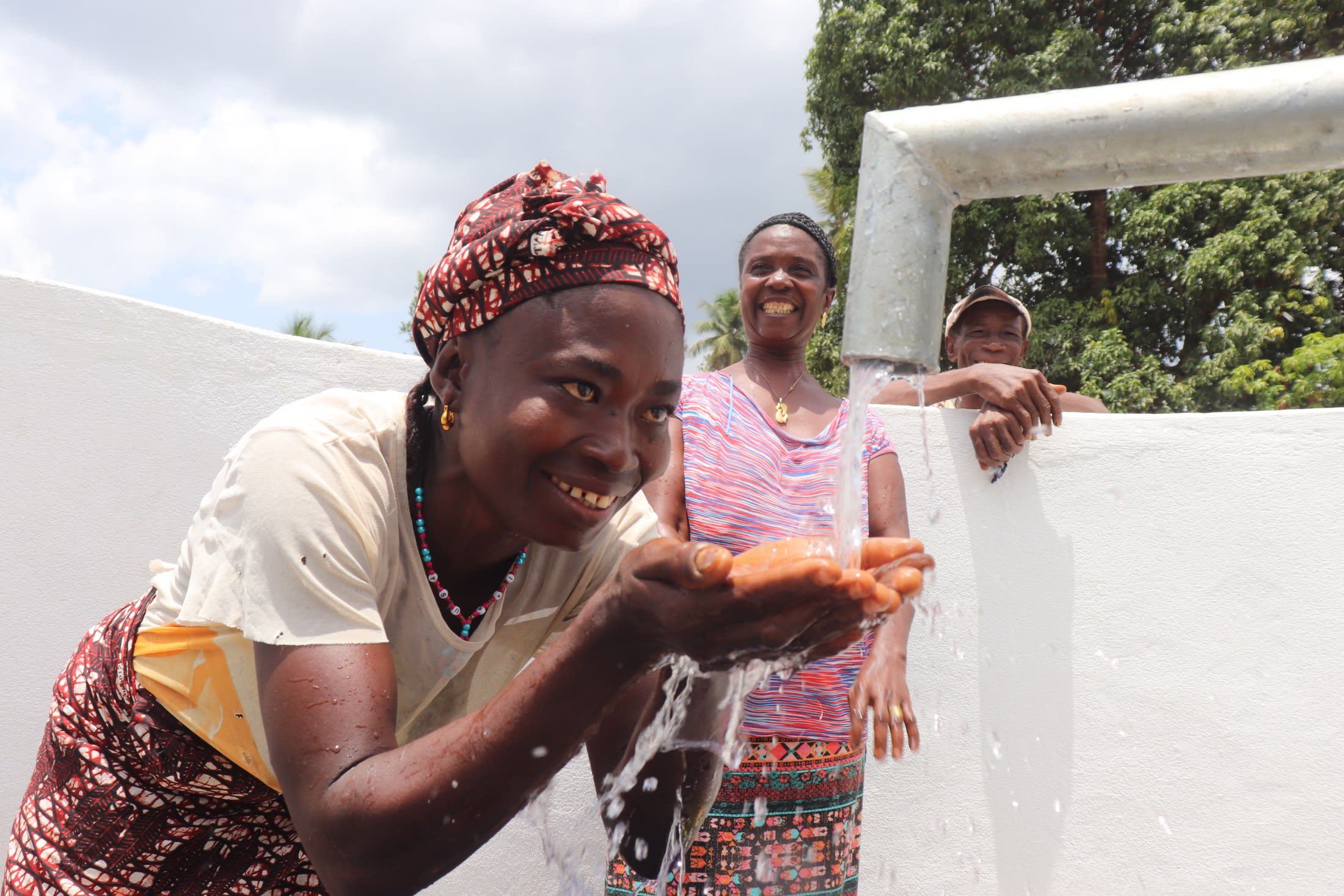
"On behalf of my fellow children in this community, I want to appreciate you for giving us this well. The presence of this well has relieved us of the burden of fetching water from the streams every day. With the well in this community, we have no reason to drink contaminated water that will endanger our lives as before," said Fatmata F.
"I want to say a very big thank you for making it possible for us to have a well."
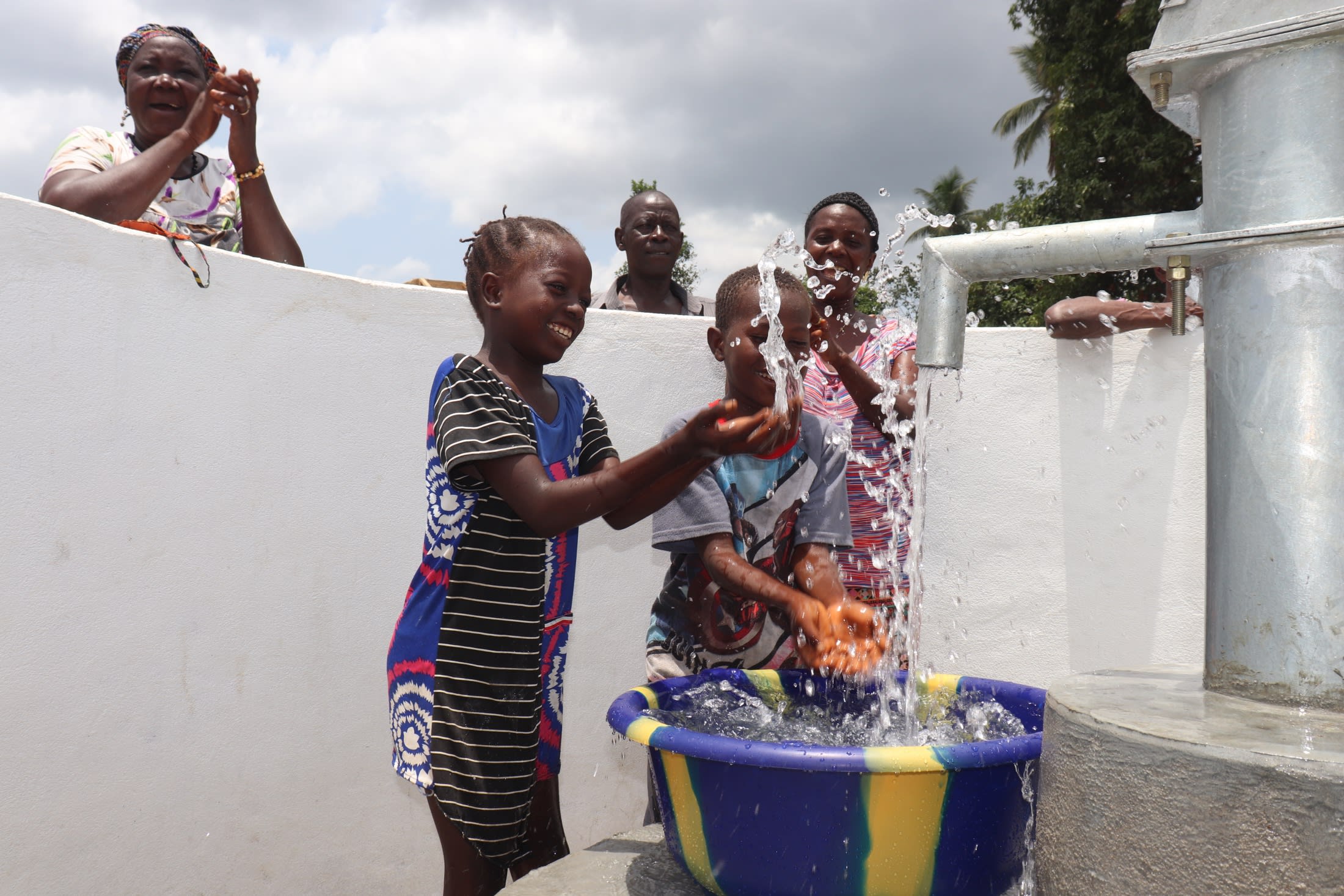
Clean Water Restored
The drill team arrived the day before beginning work. They set up camp and unpacked all of their tools and supplies to prepare for drilling the next day. The community provided space for them to store their belongings and meals for the duration of their stay. The following day, the work began.
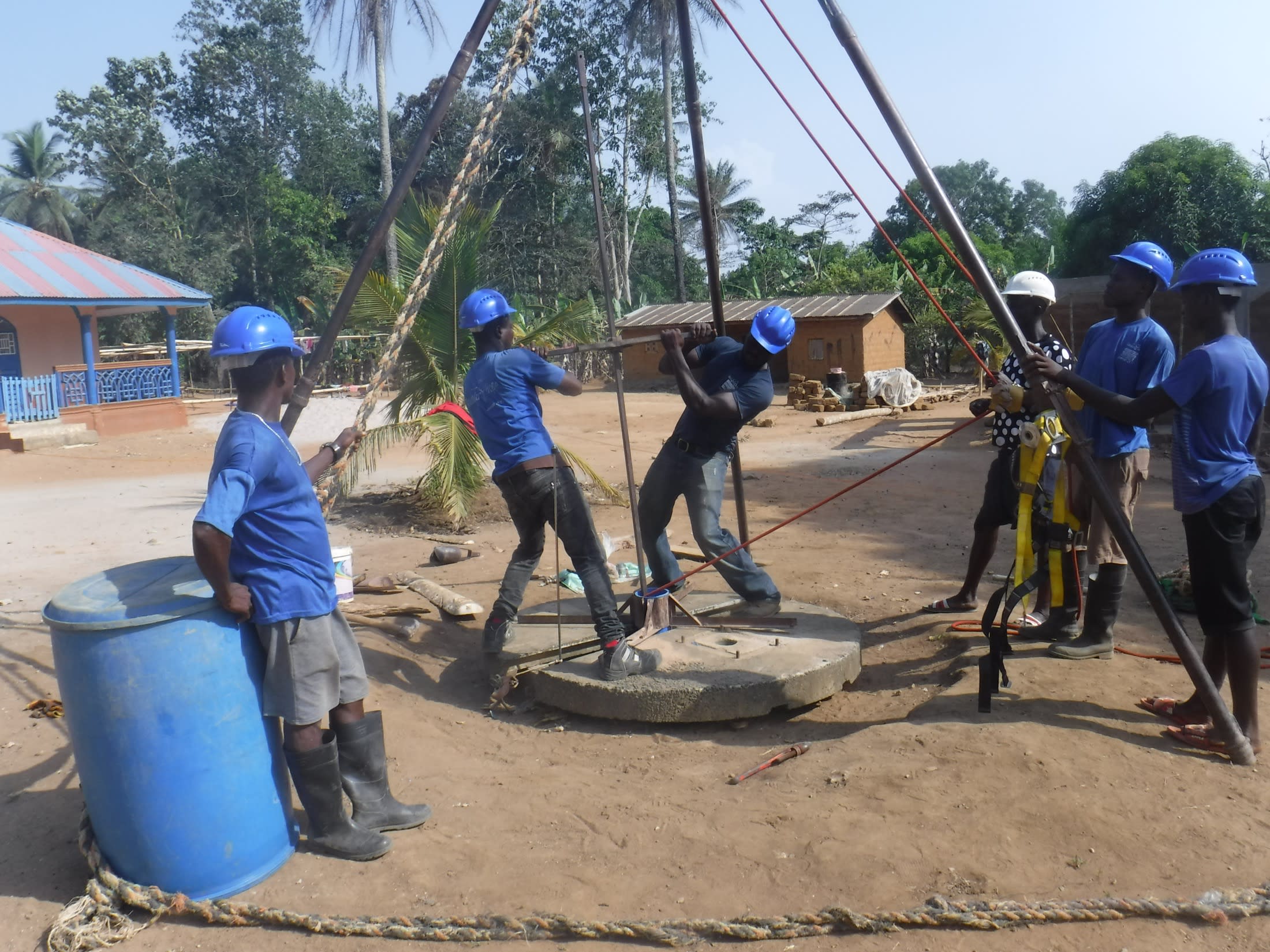
Here is how we restored clean, reliable water here:
- Raised the tripod
- Found the original depth
- Socketed the pipes
- Installed casing
- Lined up the drill rods
- Drilled!
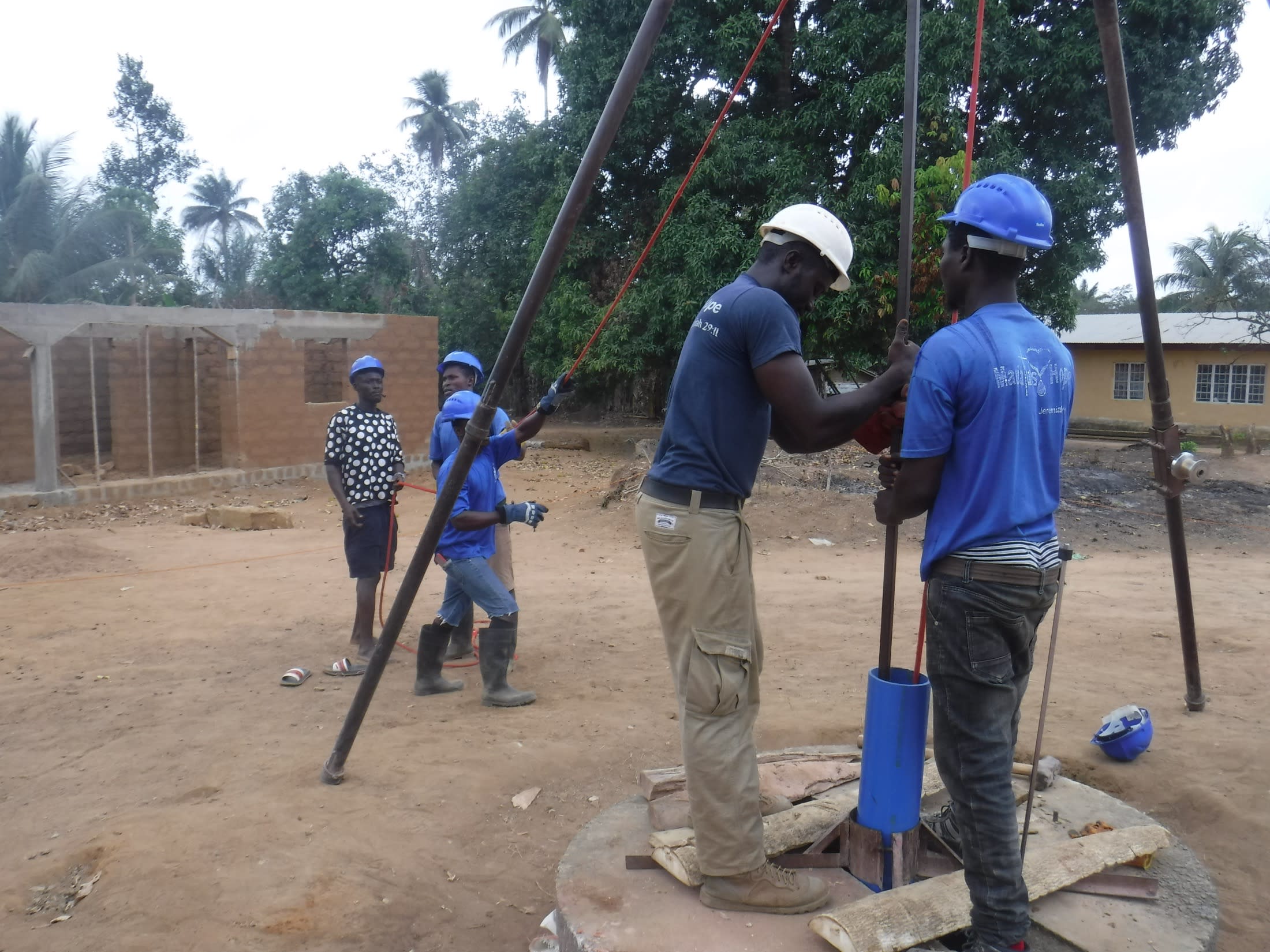
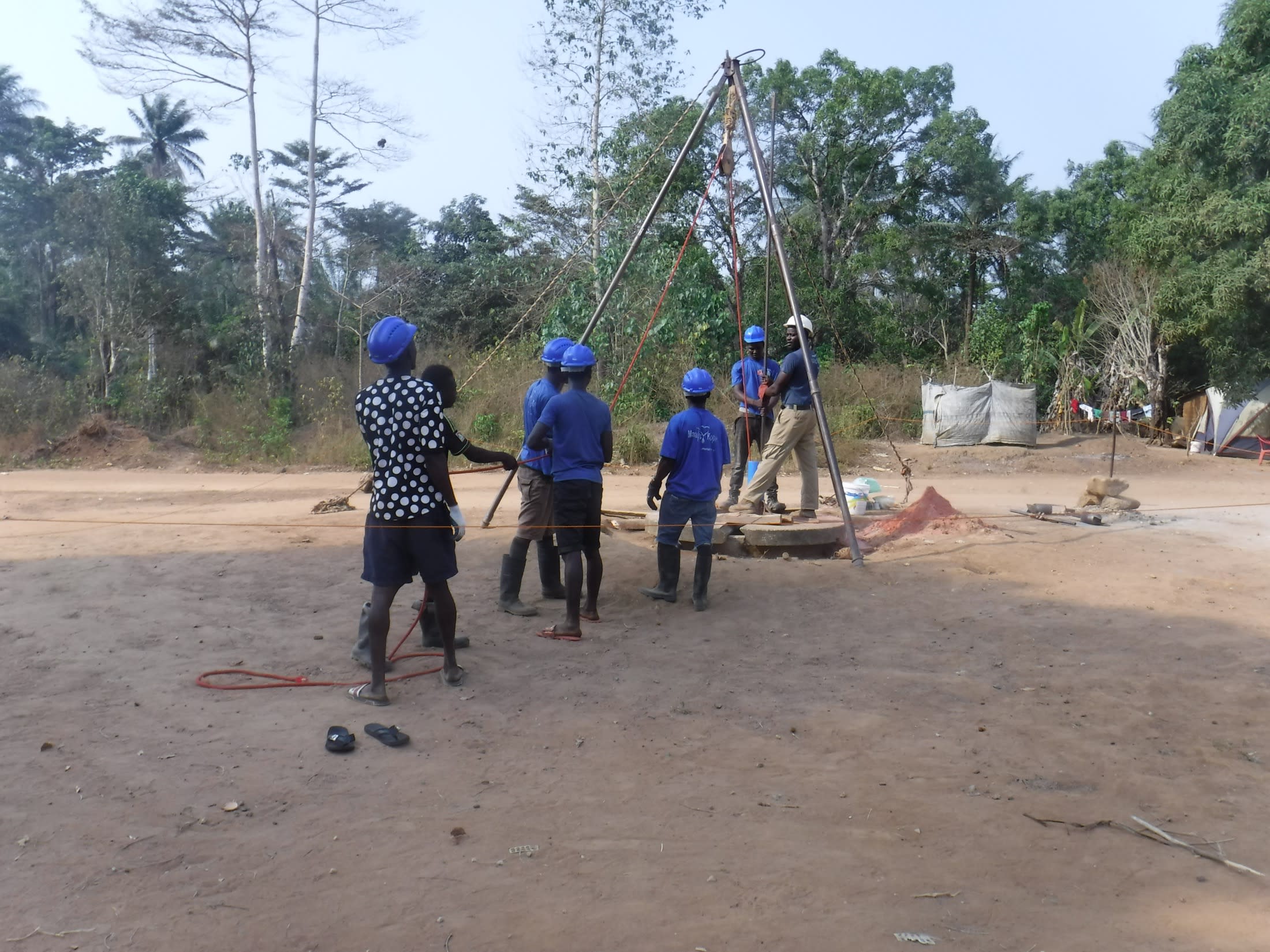
We reached a final depth of 16.51 meters with the water at 12.12 meters. The hand-drill method allowed the team to install the cylinder far below the aquifer so that the community has great water access throughout the year.
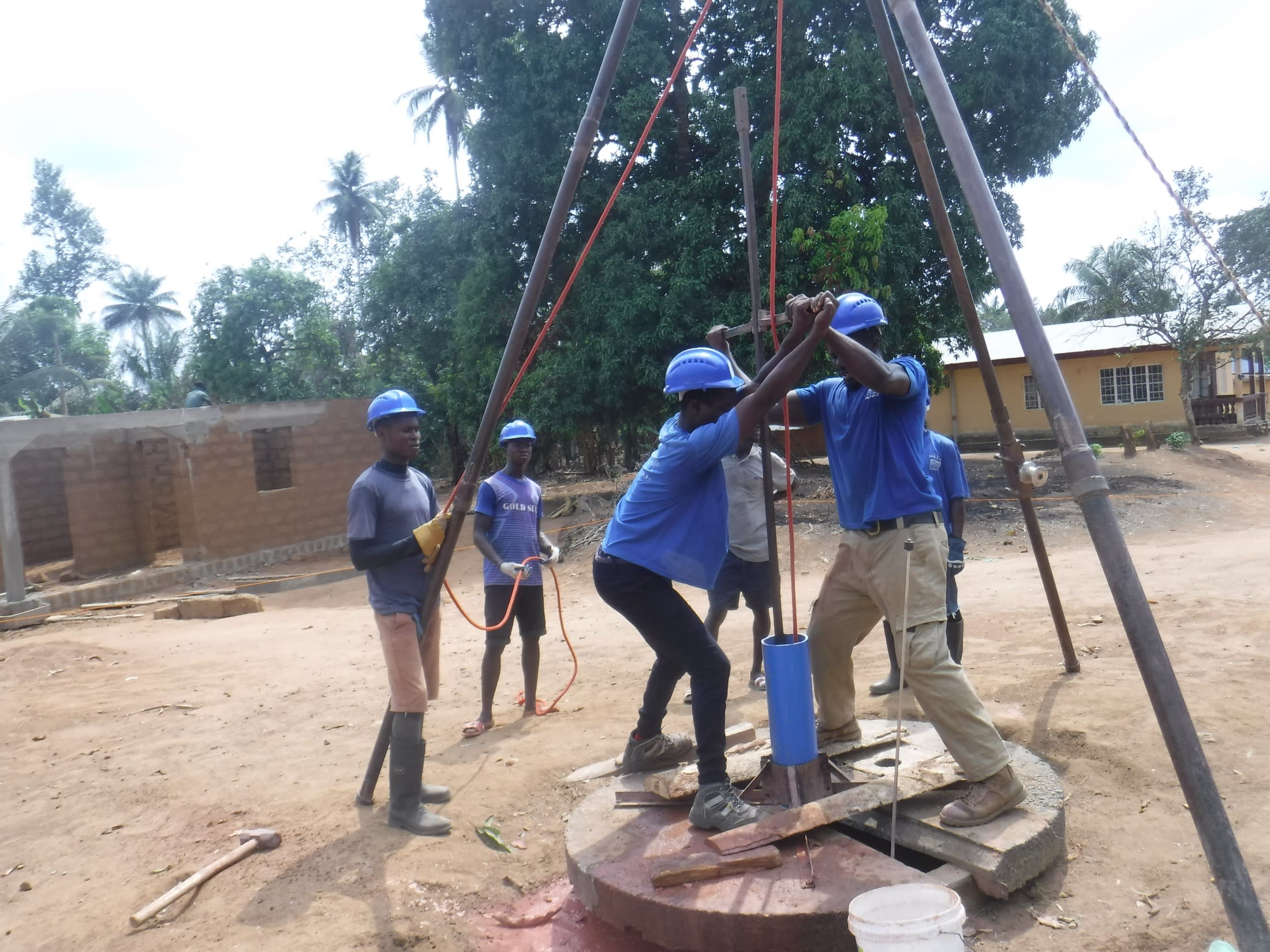
- Installed screening and filter pack
- Cemented an iron rod to the well lining, and fixed it with an iron collar at the top
- Bailed the well by hand for three days and flushed it
- Tested the yield
- Built a cement platform, walls, and drainage system
- Installed a stainless steel India Mk11 pump
- Conducted a water quality test
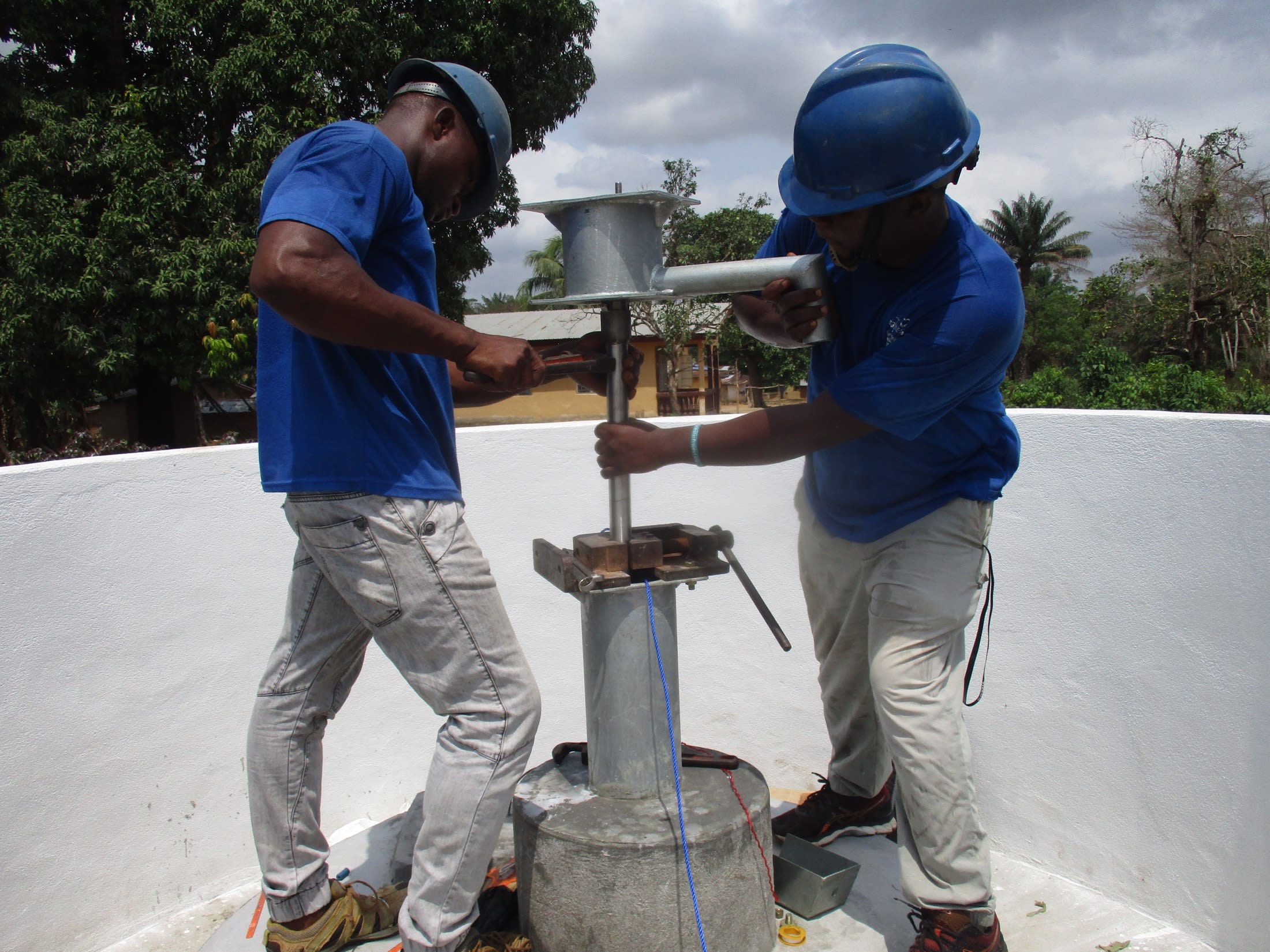
The dedication of the new waterpoint started with prayers and songs. Everyone was excited about their new well so people came out in large numbers to celebrate. The community sang songs in the local language and danced to show gratitude to our team for helping to provide a safe and reliable drinking water point for their community.
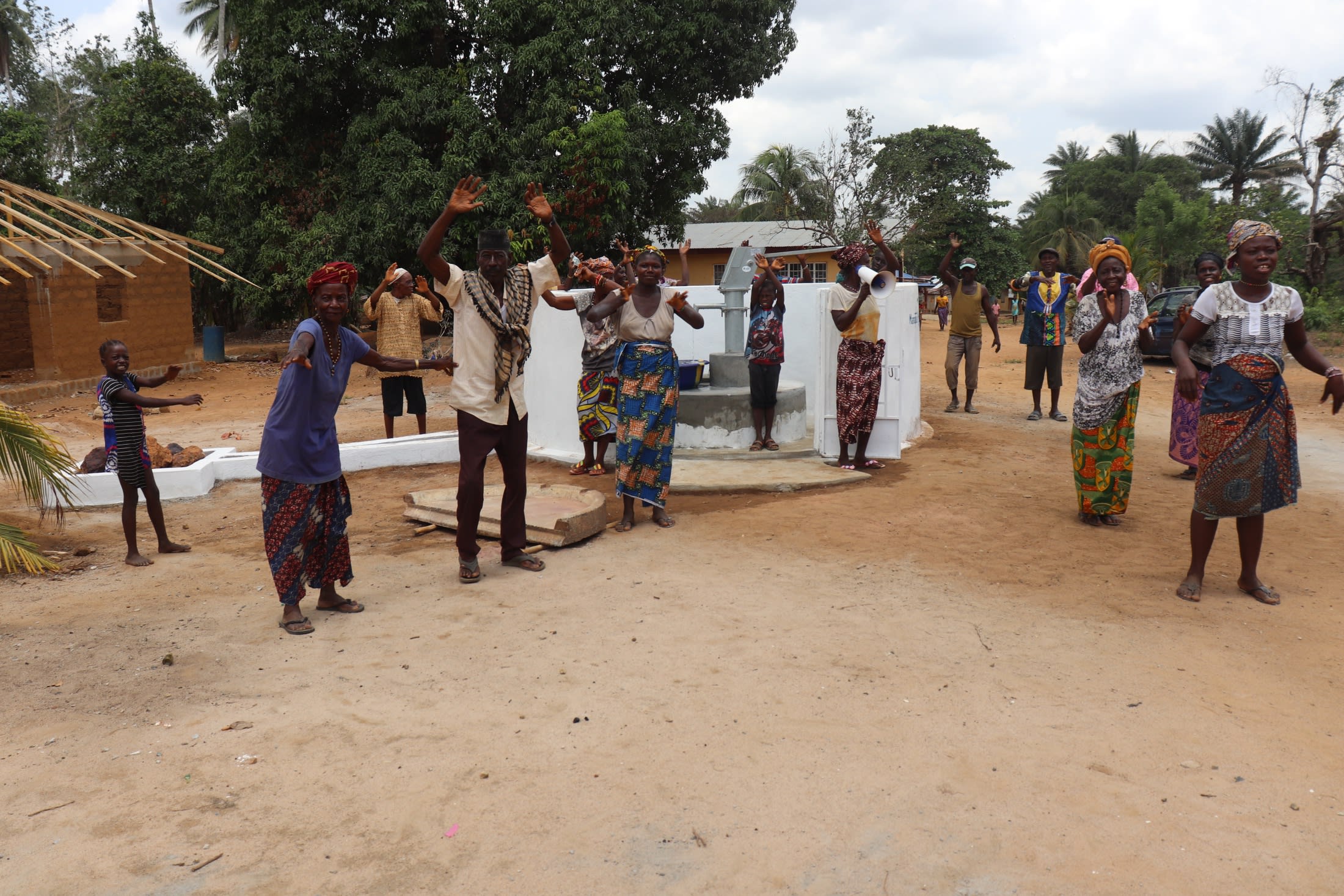
Well dedication celebration
People in attendance included the Councilor for that ward, a representative from the Ministry of Water Resources for Port Loko District, a representative from the Port Loko District Council sub-office, and women, men, and children from the Robombeh community. The newly crowned Kamasondo chief was also present for the dedication and gave a speech of thanks to all the people involved in enabling the project's success.
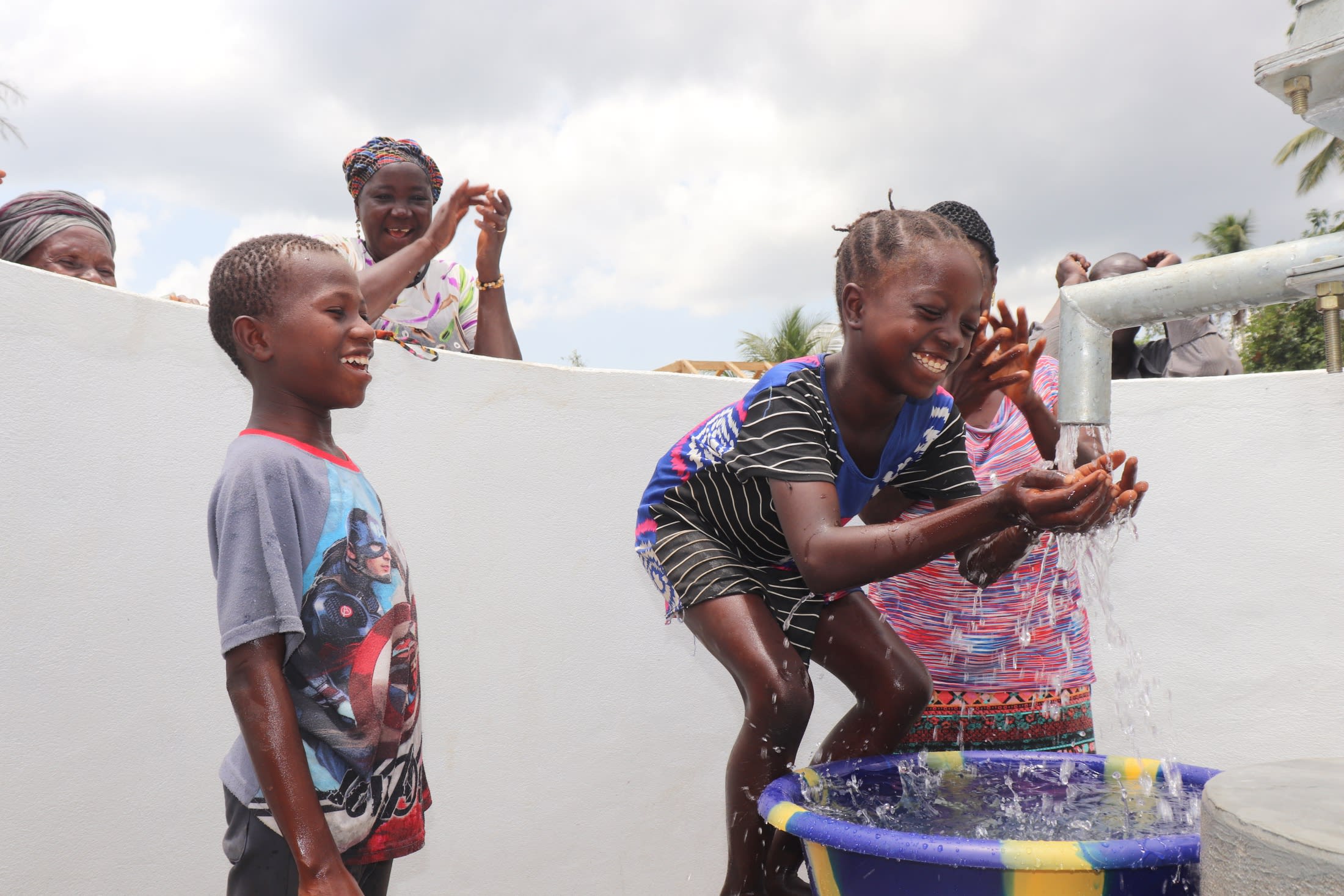
"Before this well was rehabilitated, we used to face a lot of challenges in terms of good water to drink, bathe with, and for other household chores. I used to cover a long distance a day to go in search of water, which sometimes made me sick," shared Isha Fofanah, a 70-year-old farmer.
"I want to extend my profound gratitude to you for rehabilitating our community well. Through the intervention, all constraints towards accessing good water have ended."
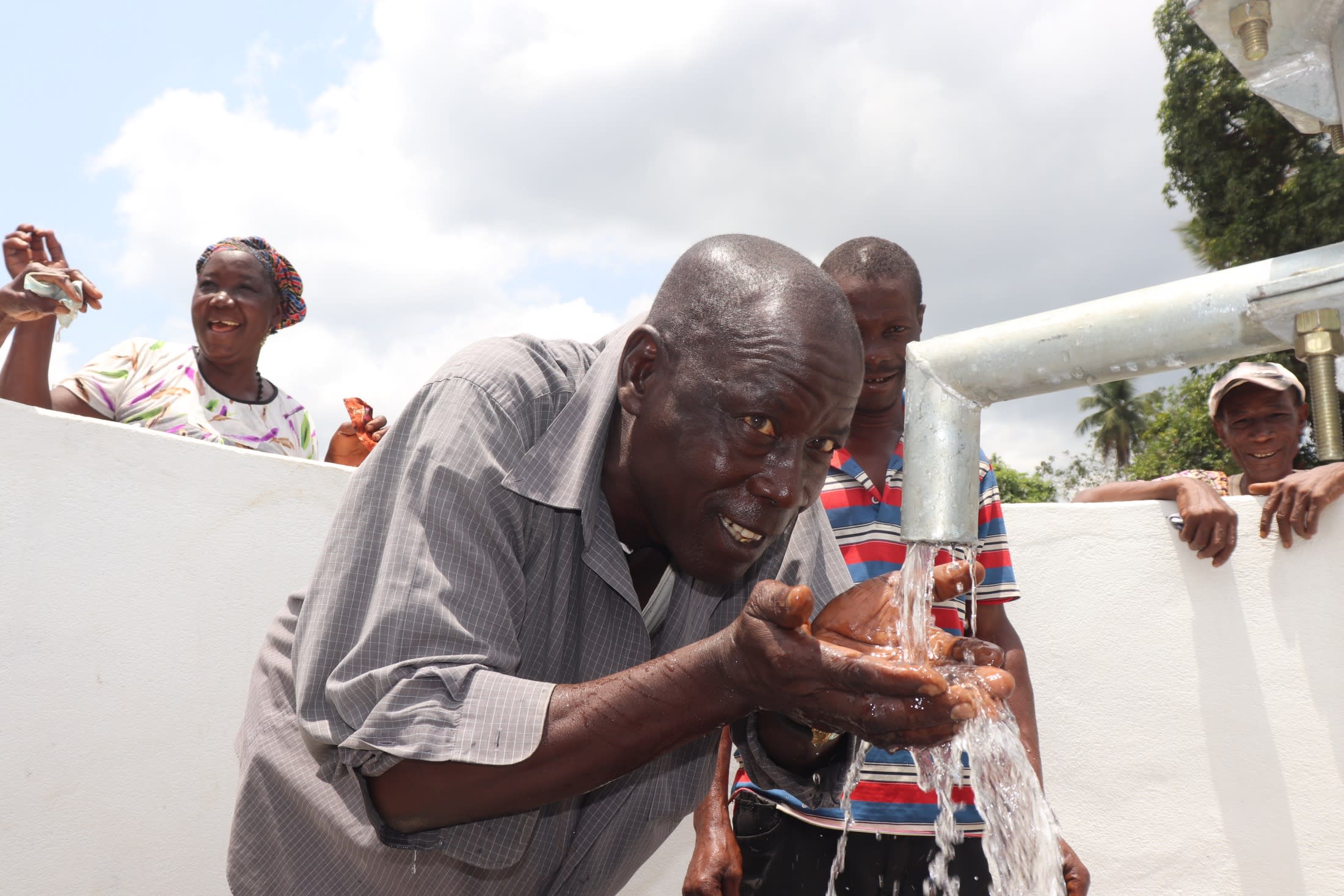
New Knowledge
Before conducting any hygiene training, we make repeated phone calls and visits to the local water user committee to better understand the community’s challenges and lack of sanitation facilities. We share the findings from our discussions with the committee members to help them make the necessary adjustments before the training begins. For example, we identify households without handwashing stations or may need to repair their latrines. With this information, community members can work together to improve hygiene and satiation at home.
After that, we schedule a time when members from each household using the water point can attend multi-day hygiene and sanitation training. When that is set, we dispatch our teams to the agreed-upon location to hold the meeting.
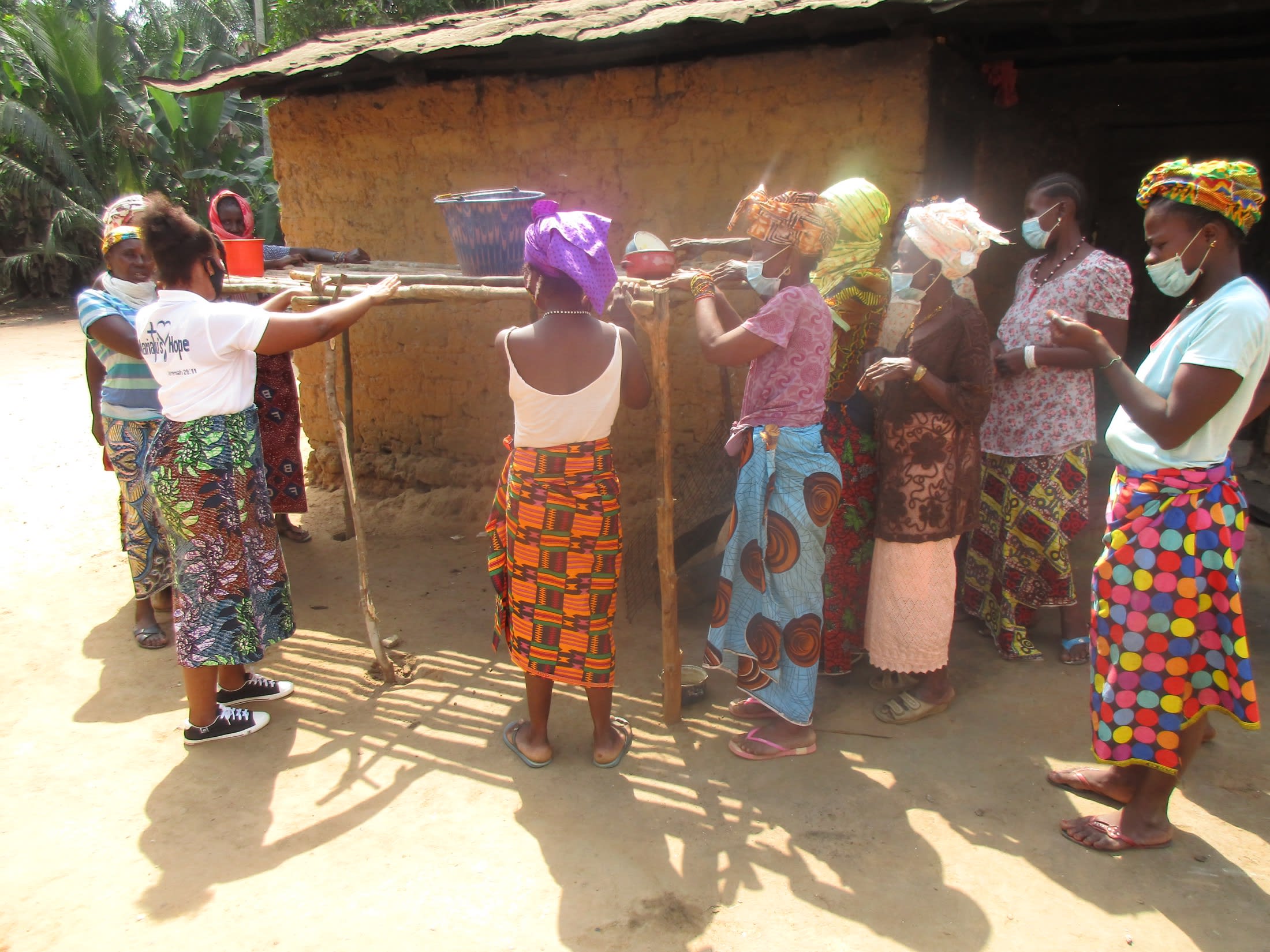
The chief explained to the team that as soon as we informed him about the training, he was able to pass on the information to his people through the town crier at night. He strictly warned everyone to witness the training. Those who refuse to do so will not fetch water at the well after construction, he instructed. As a result, the people declared the training days a holiday and agreed not to go anywhere until after the training.
Our team conducted the training in a space opposite the chief's compound, which was very spacious and well ventilated. There are lots of mango trees situated at the site, which provided us with enough shade. The location is designed as a community meeting place and resting place with benches made locally from baboon sticks that are big enough for someone to lie on. The site had a cool and comfortable atmosphere which made the training very relaxing and enjoyable for the community people and our trainers.
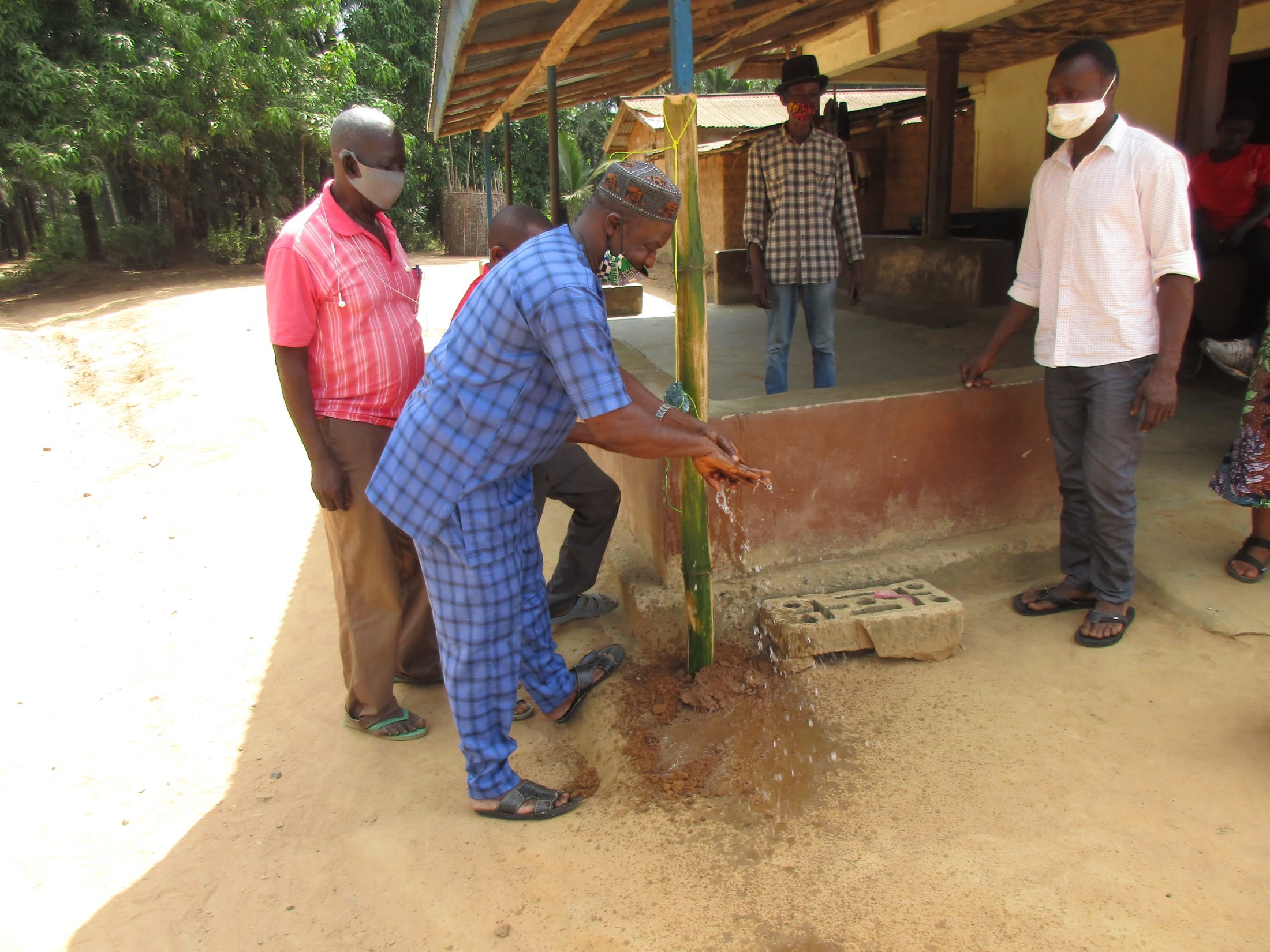
The village headman demonstrates handwashing with a tippy tap.
Training topics covered included handwashing and tippy taps; good and bad hygiene; disease transmission and prevention; worms and parasites; proper care of teeth; proper care of the pump; keeping the water clean; the cost recovery system; dish racks and clotheslines; the importance of toilets; keeping the latrine clean; balanced diets; the diarrhea doll; and HIV and AIDS.
Robombeh village is a tiny community with fifteen houses, and we were able to construct fifteen local handwashing stations using bamboo sticks. The topic of malaria was a particularly interactive session because people were surprised to know that it is only an infected mosquito bite that can cause malaria. They thought that eating fruits like mangoes or oranges, eating too much vegetable oil, or drinking palm wine could be causes of malaria. They said that the training was their first time to know that mosquitos breed in stagnant water. The attendees pledged to take steps to prevent the spread of malaria and sleep under bed nets to protect themselves and their families.
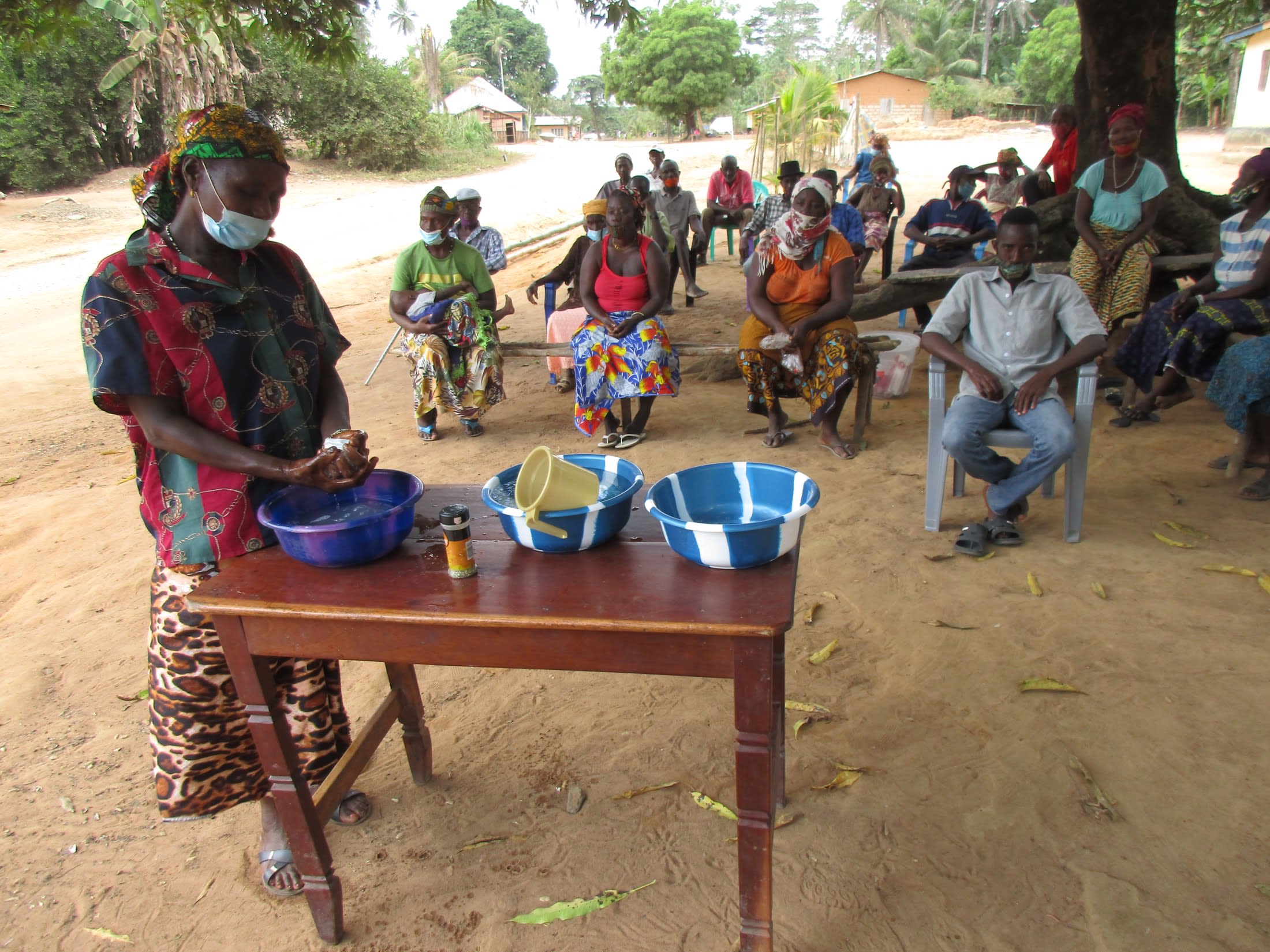
Handwashing demonstration
"Since I was born, I have never heard of the things you people taught here today, and it pleases me to know that our community was amongst the communities that you chose to provide safe and reliable drinking water," said local farmer Sheriff Fofanah.
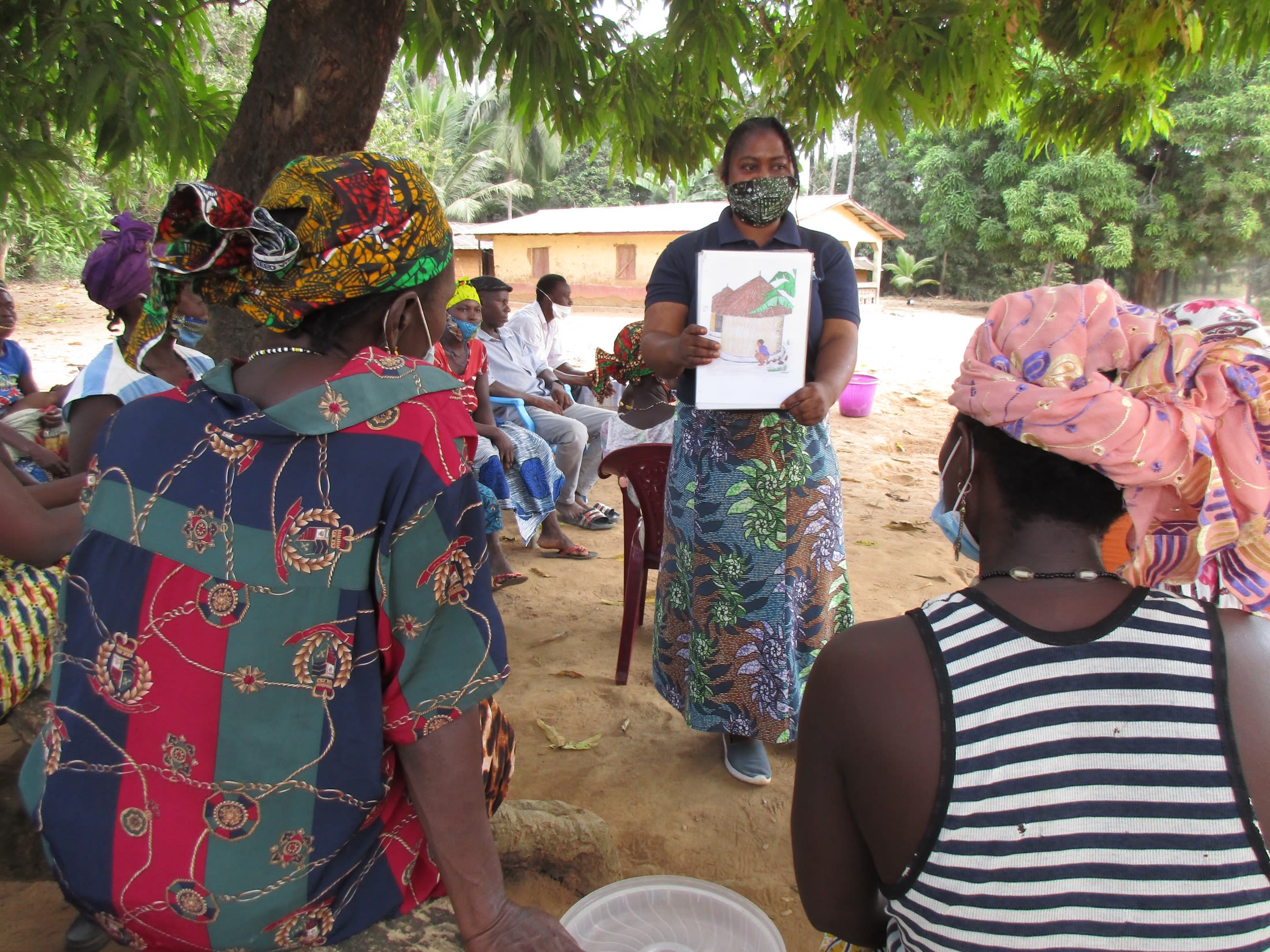
Training poster
"This training is a big opportunity to the people of this community sited here because it has helped raised our awareness about the things we have never heard before. And I strongly believe that, if we take into consideration all the knowledge we have gathered here today, it will help change our lives and will improve our way of living."
Thank you for making all of this possible!


 Borehole Well and Hand Pump
Borehole Well and Hand Pump




































